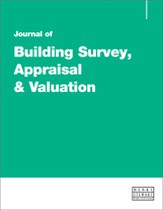Interim dilapidations
Abstract
This paper examines the issues associated with taking action against a tenant for failure to comply with covenants relating to the physical condition of leased property. It will cover the options available to a landlord, including forfeiture and re-entering and undertaking works (Jervis v Harris). It is almost impossible for a tenant to be fully compliant throughout their entire lease term. Commercial leases in the UK are a unique form of contract in that regard. The lease is almost always in breach; it is just a question of whether the conditions are suitable to enforce the breaches. With this backdrop the paper will explore the following: why tenants fail to maintain buildings properly; why landlords make claims during the lease; which covenants can be enforced; and ways of enforcing a breach of covenant. It ends with suggesting some practical steps and likely future initiatives.
The full article is available to subscribers to the journal.
Author's Biography
Christopher Sullivan is a partner in Malcolm Hollis LLP, where he heads the firm’s Birmingham office and dispute resolution service. He advises on, in particular, landlord and tenant issues and has given evidence as an expert witness in several cases. He is a RICS accredited independent expert for dilapidation disputes.
Citation
Sullivan, Christopher (2015, February 1). Interim dilapidations. In the Journal of Building Survey, Appraisal & Valuation, Volume 3, Issue 4. https://doi.org/10.69554/UTKA7017.Publications LLP
